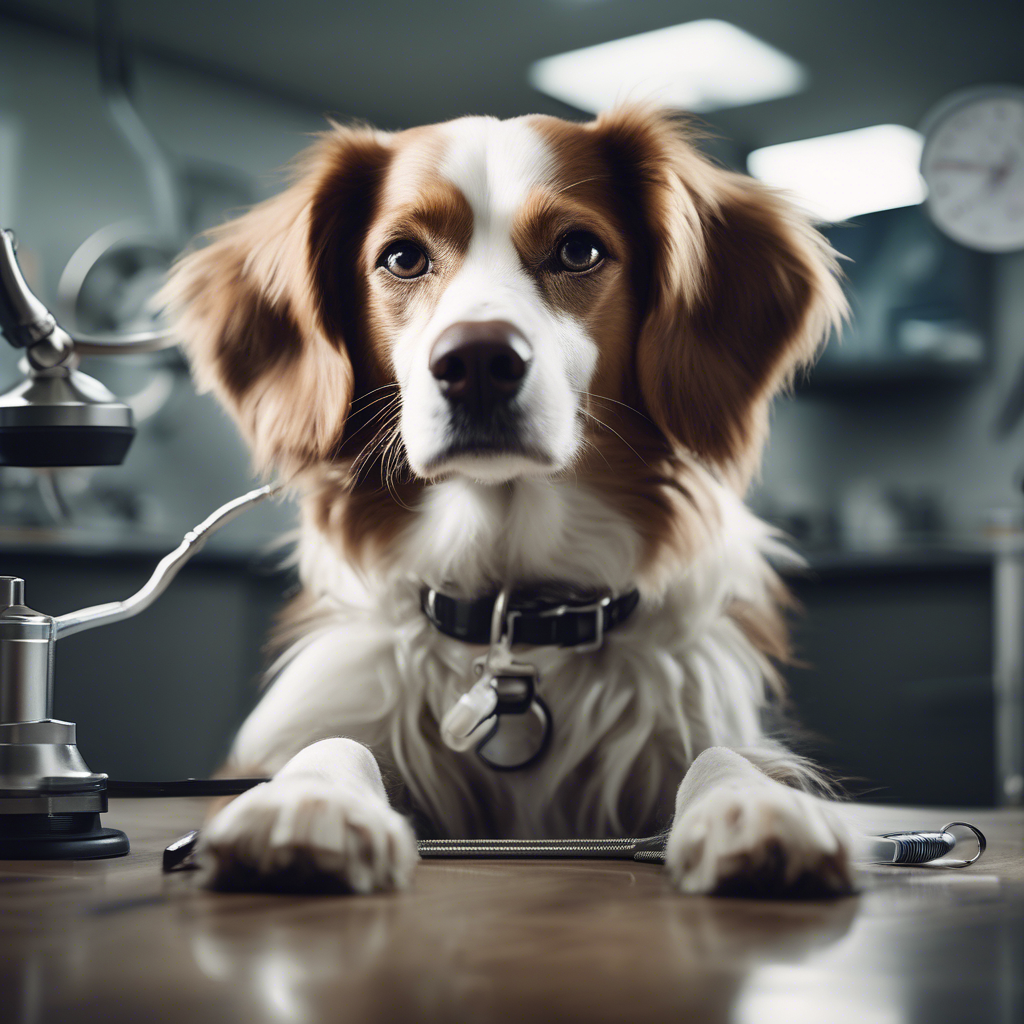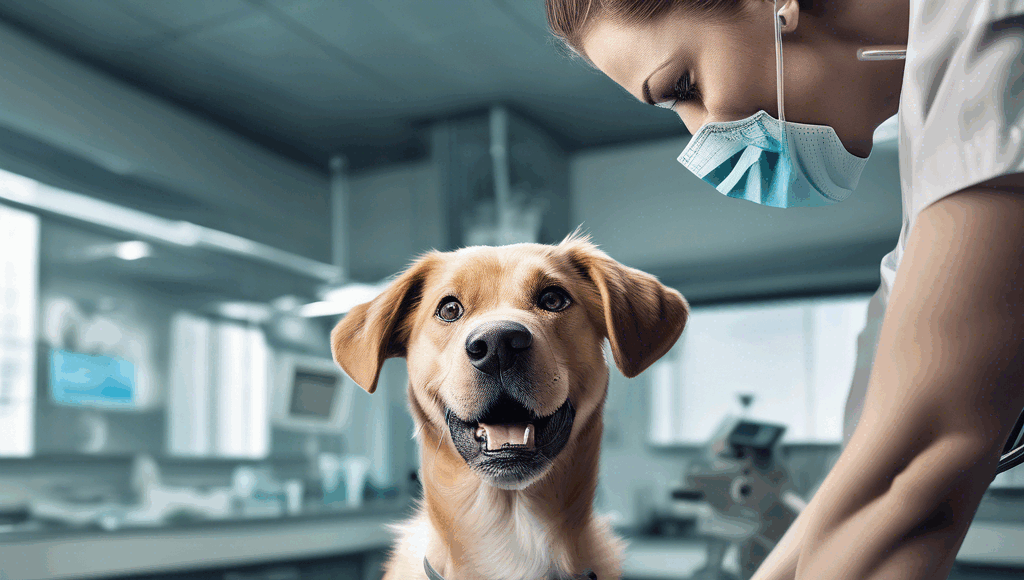The Importance of Regular Vet Check-ups for Dogs
In the hustle and bustle of daily life, it’s easy to overlook the importance of regular vet check-ups for dogs. However, these routine visits are crucial for ensuring your furry friend’s long-term health and happiness. Just like humans, dogs require consistent medical attention to prevent illness, detect problems early, and maintain overall wellness. As a dog owner today, understanding the significance of these appointments can make a substantial difference in your pet’s quality of life.

With advancements in veterinary medicine and an increasing awareness of pet health, taking your dog for regular vet check-ups has never been more critical. These visits aren’t just about getting vaccines; they encompass a comprehensive approach to your dog’s health, including preventative care, nutritional advice, and behavioral assessments. This article will explore the myriad benefits of vet visits, what happens during a dog health check-up, and how these appointments can help in identifying potential health issues early.
By the end of this article, you will have a clearer understanding of why routine vet visits for dogs are essential. We’ll delve into the specifics of what these check-ups entail, highlight the benefits of vet visits for dogs, and offer practical advice on how to make the most of each appointment. Whether you’re a seasoned pet parent or a new dog owner, this guide will equip you with the knowledge needed to prioritize your dog’s health effectively.
Understanding Dog Health Check-ups
Dog health check-ups are more than just a routine task; they are a vital component of preventative care for dogs. During these visits, veterinarians conduct comprehensive examinations, checking everything from your dog’s weight and temperature to their teeth and coat condition. These assessments can reveal early signs of health issues, allowing for timely intervention.
For instance, a simple check of your dog’s coat and skin can uncover allergies or skin infections that might not be immediately apparent. Similarly, examining your dog’s teeth and gums can prevent dental disease, a common issue that affects many dogs. According to the American Veterinary Medical Association, over 80% of dogs show signs of oral disease by age three, underscoring the importance of regular vet check-ups.
Moreover, these appointments provide an opportunity to update vaccinations, ensuring your dog is protected against various diseases. Vaccinations are a crucial aspect of dog wellness exams, as they prevent potentially life-threatening illnesses like rabies and parvovirus. Routine vet visits for dogs are, therefore, an essential part of maintaining your pet’s health and safeguarding them against preventable diseases.
The Benefits of Vet Visits for Dogs
Regular vet check-ups for dogs offer numerous benefits, ranging from early disease detection to advice on nutrition and behavior. One of the most significant advantages is the ability to catch health issues before they become severe. Early diagnosis often means more effective treatment and less discomfort for your pet.
For example, routine blood tests can detect conditions such as kidney disease or diabetes in their early stages, allowing for more effective management. In addition to medical assessments, vets can provide valuable insights into your dog’s diet and exercise needs. Many dogs suffer from obesity, a condition that can lead to serious health problems. Your veterinarian can recommend a balanced diet and exercise regimen tailored to your dog’s specific needs, promoting a healthier lifestyle.
Behavioral assessments are another key benefit of regular vet visits. Changes in behavior can indicate underlying health issues or environmental stressors. By discussing these changes with a vet, you can identify and address potential problems, ensuring your dog’s mental and emotional well-being.
Preventative Care for Dogs
The importance of dog veterinary care extends beyond treating illnesses; it’s about preventing them. Preventative care for dogs is a proactive approach to health management, focusing on reducing the risk of disease before it occurs. This includes routine vaccinations, parasite control, and regular health screenings.
Parasite control is a vital component of preventative care. Fleas, ticks, and heartworms can cause significant health problems, but they are preventable with the right measures. During vet check-ups, your veterinarian will advise on the best preventative treatments for your dog, tailored to their lifestyle and environment.
Regular health screenings, including blood work and urinalysis, can detect early signs of disease, enabling prompt treatment. These screenings are especially important for older dogs, as they are more susceptible to age-related conditions. By incorporating preventative care into your routine vet visits, you can extend your dog’s lifespan and improve their quality of life.
What Happens During a Routine Vet Visit?
Understanding what happens during a routine vet visit can help you prepare and make the most of the appointment. Typically, a vet check-up will start with a thorough physical examination. The vet will check your dog’s overall appearance, weight, and body condition, as well as examine their eyes, ears, and mouth.
Following the physical exam, your vet may recommend additional tests based on their findings. These could include blood tests, urinalysis, or x-rays. Such diagnostic tests are crucial for uncovering hidden issues that aren’t visible during a physical examination.
Lastly, your vet will discuss any concerns you have and answer questions about your dog’s health, nutrition, or behavior. This is your opportunity to seek expert advice and ensure you’re providing the best care for your pet. By actively participating in these discussions, you can forge a strong partnership with your vet, which is essential for effective health management.
To complement this article, consider watching educational videos on dog health and wellness. These videos often provide practical demonstrations and expert insights that can enhance your understanding of how to care for your pet effectively.
Frequently Asked Questions
Why should I take my dog for regular vet check-ups?
Regular vet check-ups are essential for early disease detection, maintaining vaccinations, and ensuring overall health. These visits enable vets to catch potential health issues early, such as dental disease or obesity, which can be managed more effectively when identified promptly.
How often should my dog have a health check-up?
Most veterinarians recommend annual check-ups for adult dogs, while puppies and senior dogs may require more frequent visits. These regular appointments help monitor your dog’s development and address any age-specific health concerns.
What should I expect during a dog wellness exam?
During a dog wellness exam, the vet will conduct a physical examination, check vital signs, and discuss your dog’s diet and behavior. They may also recommend vaccinations, parasite control, and diagnostic tests based on your pet’s specific needs.
Are there specific health screenings for senior dogs?
Yes, senior dogs often require more frequent health screenings to monitor age-related conditions. These may include blood work, urinalysis, and checks for arthritis or cognitive decline, enabling timely intervention and management.
Can regular vet visits prevent health issues in dogs?
Absolutely. Regular vet visits are a cornerstone of preventive care, helping to prevent diseases through vaccinations, parasite control, and early detection of health issues. This proactive approach can significantly improve your dog’s quality of life.
Conclusion
In conclusion, the importance of regular vet check-ups for dogs cannot be overstated. These visits are crucial for maintaining your dog’s health, preventing diseases, and catching potential issues early. By prioritizing routine vet visits, you’re taking a proactive step in ensuring your pet’s well-being and longevity.
As a pet owner, your next steps should include scheduling regular vet appointments and actively participating in your dog’s health care. Be sure to address any concerns with your veterinarian and seek advice on maintaining a healthy lifestyle for your pet. Remember, a healthy dog is a happy dog.
For further reading, consider exploring topics such as “Understanding Dog Vaccinations,” “The Role of Nutrition in Pet Health,” and “How to Identify Behavioral Changes in Dogs.” These subjects can deepen your knowledge and help you provide the best care for your furry friend.




